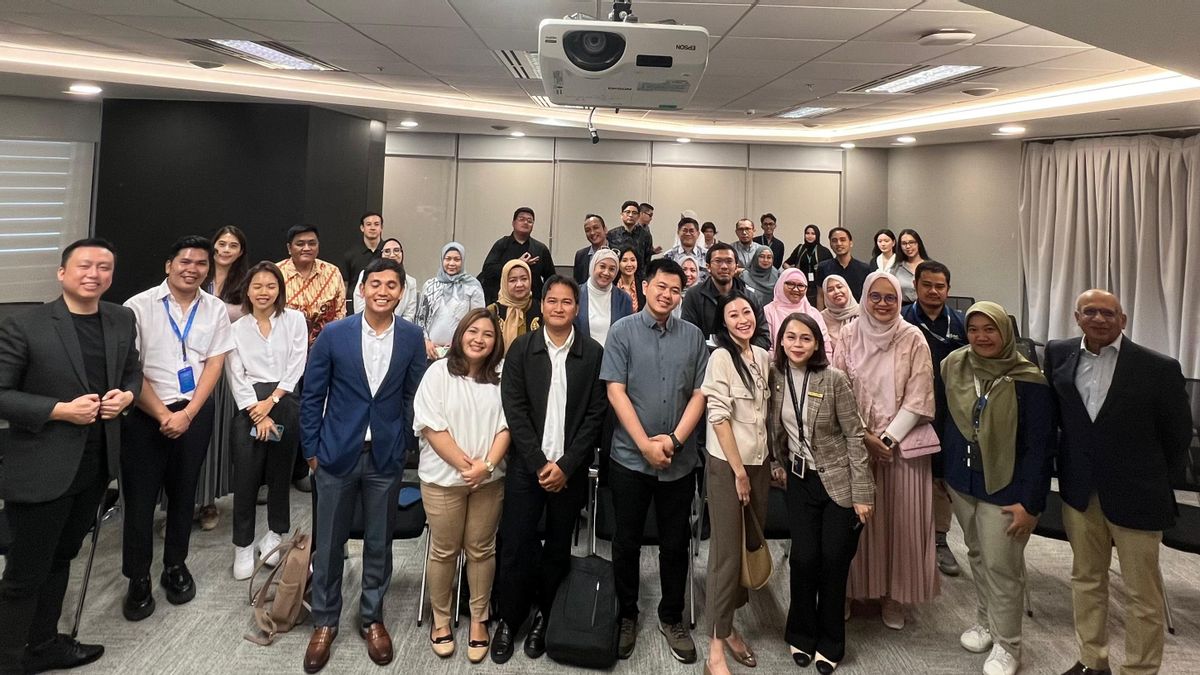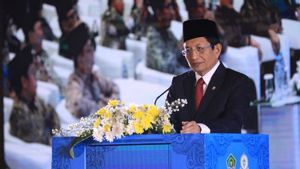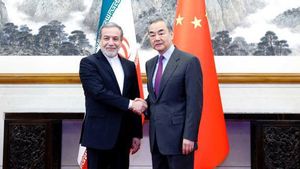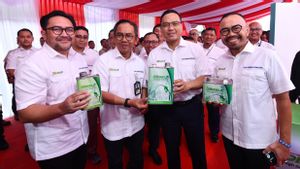JAKARTA - Along with the increasing number of Indonesians demanding more quality health services, health service providers need to change the way they provide services that should include greater technology adoption.
In an effort to increase understanding and adoption of technology in the health sector, Halodoc has partnered with the Singapore Management University Overseas Center to organize dialogue sessions to explore how health service providers can adopt and utilize technology effectively and efficiently. The event presented two leading speakers from the Asian health industry, namely Dr. Yong Chern total, Head of the Asian Ecosystem at 22Health Ventures, Aldi Haryopratomo, member of the Board of Commissioners at Halodoc, and Shoeb Kagda, Director of the Jakarta Overseas Center.
Health technologies include various digital innovations such as telemedicine, artificial intelligence (AI) for diagnosis, wearable health devices, and electronic medical records (EHR). All of this revolutionizes the way health services are provided. The challenge for hospitals and clinics is to adopt this technology effectively to improve the quality of care and expand health inclusion.
Dr. Goodminton, who also teaches at the Singapore Management University Academy (SMUA) explains how health care providers can effectively adopt technology to improve the quality of health services and accessibility in Indonesia. Like many other industries, health services are currently experiencing a major revolution thanks to technological advances.
"The motivation to invest in health technology is to bridge the gap between technology and the health sector. Often health professionals don't fully understand technology while tech experts may not understand how health services are provided. Our goal is to bridge between technology providers and health professionals," he said during a press conference for the seminar. "Technology in Health Services: Future Practical Apps for Hospitals and Clinics" at the IFC Building, Thursday 7 November.
"The big challenge is not only technology and science but a health professional mindset and leadership that will have the biggest impact," he added.
Aldi Haryopratomo, a member of the Halodoc Board of Commissioners as well as a member of the Indonesian High School Board of Trustees, added that technology such as telemedicine and third party management for insurance has made it easier for people in various regions in Indonesia to access health services.
"Telemedicine allows patients in remote areas to get consultations without having to travel long distances, and our insurance management technology helps coordinate claims with companies, clinics and hospitals more efficiently," explained Aldi.
"Technology or the latest features are not very important, but have the right alignment between business and technology. Find experienced technology partners, not just vendors," he added.
There are several advantages of implementing health technology in hospitals and clinics, first of all can help improve patient care. Technology allows early diagnosis, more accurate treatment, and personalized treatment plans. In addition, hospitals and clinics can achieve operational efficiency, given that digital devices help reduce administrative burdens so that medical personnel can focus more on patient care.
Then there are better safety and data management issues, for example, electronic medical records can ensure patient data is stored safely and easily accessible. Then wider accessibility, such as telemedicine and health applications, health services can reach remote areas.
BACA JUGA:
Shoeb Kagda, Director of the Jakarta Overseas Center High School, noted that the high school has a management program focused on the leadership of health services that can benefit Indonesian hospital administrators and private clinic owners.
"With greater technology adoption, health care professionals, both doctors and administrators need to have more in-depth knowledge of when and how to best use technology," he said.
High schools, he said, were involved with various Indonesian stakeholders including industry and government institutions and universities to collaborate in mutually beneficial partnerships. Technology has changed the way health services are provided, from managing medical data to interacting with patients. With the increasing number of technology choices, it is important to strengthen the synergy between technology and the health care sector, focusing on creating more inclusive, efficient, and affordable systems for the wider community in Indonesia.
The English, Chinese, Japanese, Arabic, and French versions are automatically generated by the AI. So there may still be inaccuracies in translating, please always see Indonesian as our main language. (system supported by DigitalSiber.id)
















